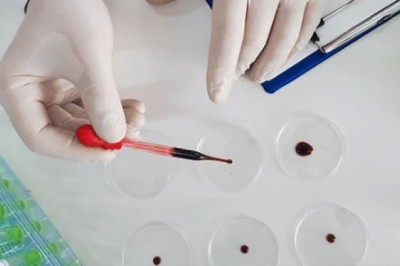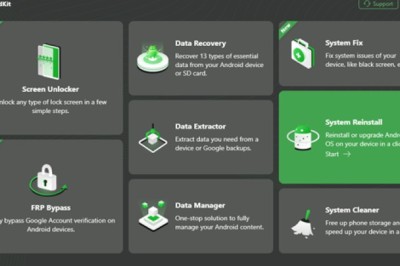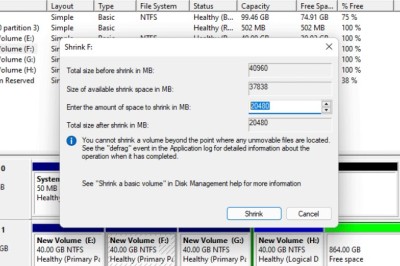views
The danger of cocaine is hardly a thing of the past, even with the ongoing popularity of other stimulants like amphetamine. However, one of the dangers that may be unknown to many includes the development of eating disorders. Here’s how cocaine’s suppression of hunger can take a toll on our nutritional health and why cocaine addiction causes this.
Coca Leaves vs. Cocaine?
Cocaine is an expensive drug. Sometimes, it is called the “caviar of street drugs.” Part of this is because of its unique source in South America. But it doesn’t start as a white powdery substance — it starts as a plant.
The coca plants native to South America have a long history of medicinal use. Some, including Pope Francis, have used the coca leaf in tea or even chewed the leaves for their health benefits. In fact, you can even find this as an ingredient in toothpaste and shampoos in Bolivia, where the leaves are legal. Some note that its benefits include providing stimulation while suppressing pain, thirst, and hunger.
However, when this plant is synthesized into the drug known as cocaine, it takes on a much more dangerous identity. Like the leaves it is derived from, cocaine is a stimulant, but it affects the brain and body much more intensely, disrupting the brain’s reward system and associating cocaine with pleasure. In fact, this severe dependence that develops in the brain’s reward system while using cocaine can end up causing drug cravings. The brain starts to see the drug as a vital substance for the simple bodily functions of everyday life. As a result, cocaine can produce euphoria when it's taken, numbing pain and nutritional impulses like eating and drinking.
However, it remains the so-called “caviar of street drugs” and enjoys an international market of illegal buyers. Because there is so much money on the table, drug kingpins are willing to take whatever risks are necessary to smuggle cocaine into the United States and abroad for distribution. Sometimes they are caught, such as in the recent case of Dairo Antonia Usuga David, who recently pleaded guilty to the distribution of over 100 tons of cocaine into the United States and Central America.
This kind of storyline might be expected, but other times, it comes from the help of those least likely to be involved, such as the Pennsylvania police chief who was also recently arrested for aiding and abetting the distribution of cocaine and methamphetamine. Far from being a nostalgic drug of the late 20th century, cocaine continues to make its way into the United States.
Cocaine and Our Appetites
How exactly does cocaine cause eating disorders? The simple answer is that cocaine curbs our appetites and suppresses the urge to eat. This causes some people to turn to cocaine to lose weight, although most people experience eating disorders after becoming addicted to the drug. Some animal research shows that cocaine addiction in laboratory animals can be so strong that they ignore eating food in favor of cocaine to the point of starvation.
In other cases, cocaine can cause the opposite of what someone might expect with the previous example of starvation. Besides the concern of starvation, cocaine can also produce binge-eating disorders. According to Mayo Clinic, binge-eating disorders are instances of large consumption of food at a frequent rate. This happens not because someone is high on cocaine but because they are crashing from a cocaine high.
Cocaine commonly suppresses hunger pains, but as the drug’s effects begin to die, those numbed and suppressed sensations will be felt. For some, this can be experienced with an intense desire to eat at an unhealthy rate. Over time, this extreme pattern from starvation to binge eating when cocaine is used can negatively impact bodily health.
Unfortunately, there is also evidence that binge eating can lead to substance use disorder (SUD), even for those who have not previously used cocaine or other drugs. This makes cocaine even more dangerous in the discussion of dual diagnosis, the combined diagnosis of a substance use disorder and a mental health disorder. In the case of cocaine and its appetite suppression, addiction can become a vicious cycle of eating disorders and substance abuse since they both feed off each other.
Recovery Efforts
The decision to seek help from medical professionals is an important step toward recovery and one that can help you get out of the never-ending cycle of experiencing the adverse effects of addiction, mentally and physically. If you or someone you know has a cocaine addiction or a substance abuse-related eating disorder, it is important to get professional help immediately and start your road to detox and recovery.
Sources
Delphi Health Group (n.d.). Guide to Cocaine Addiction and Treatment. Retrieved from: https://delphihealthgroup.com/stimulants/cocaine/
Fox News. (2023 January 27). Pennsylvania police chief charged with aiding and abetting the distribution of cocaine and meth. Retrieved https://www.foxnews.com/us/pennsylvania-police-chief-charged-aiding-abetting-distribution-cocaine-meth
The Guardian. (2015 July 09). It's not cocaine: what you need to know about the pope's coca drink. Retrieved https://www.theguardian.com/world/2015/jul/09/its-not-cocaine-what-you-need-to-know-about-the-popes-coca-drink
The Wall Street Journal. (2023 January 25). Colombian Drug Kingpin Pleads Guilty to Smuggling Cocaine Into U.S. Retrieved https://www.wsj.com/articles/colombian-drug-kingpin-pleads-guilty-to-smuggling-cocaine-into-u-s-11674682175
National Library of Medicine. (1998 April). The Role of Weight Control as a Motivation for Cocaine Abuse. Retrieved https://pubmed.ncbi.nlm.nih.gov/9573424/
National Library of Medicine. (2005 December). The Neurobiology of Cocaine Addiction. Retrieved https://www.ncbi.nlm.nih.gov/pmc/articles/PMC2851032/
Mayo Clinic (2018, May, 05). Binge-eating Disorder. Retrieved from: https://www.mayoclinic.org/diseases-conditions/binge-eating-disorder/symptoms-causes/syc-20353627
National Library of Medicine. (2021 September 19). Binge eating and psychostimulant addiction. Retrieved https://www.ncbi.nlm.nih.gov/pmc/articles/PMC8475000/
Delphi Health Group (n.d.). A Guide to Dual Diagnosis Treatment. Retrieved from: https://delphihealthgroup.com/dual-diagnosis-treatment/





















Comments
0 comment